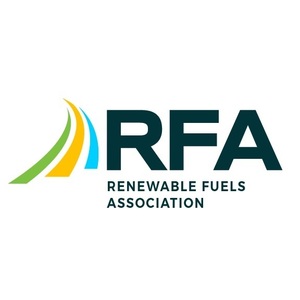RFA: EPA can help reduce Hurricane Ida's fuel price shock

August 30, 2021
BY Renewable Fuels Association
With Hurricane Ida impacting the nation’s liquid fuel supply and distribution, the Renewable Fuels Association today urged the U.S. Environmental Protection Agency to take two quick and simple steps that can extend fuel supplies and reduce price spikes expected at the retail fuel pump.
The requested actions relate to pump labeling, underground storage tanks, and gasoline volatility regulations. Approving RFA’s request would allow many retailers who do not sell the lower-carbon E15 fuel blend today to immediately begin offering the fuel without being unduly delayed, RFA President and CEO Geoff Cooper noted in a letter to EPA Administrator Michael Regan. EPA should also approve earlier requests to exercise enforcement discretion—if needed—to allow existing E15 retailers in conventional gasoline areas to continue selling the fuel through the remainder of the summer ozone control season.
“As the ethanol industry continues to recover from COVID-related market disruptions, a substantial amount of fuel ethanol production capacity (i.e., nearly 200,000 barrels per day) is either sitting idle today or producing industrial and/or other non-fuel grades of ethanol,” Cooper wrote. “With immediate action to grant the requested regulatory relief, some of this capacity could be quickly activated or reoriented to help alleviate impending fuel shortages resulting from Hurricane Ida. For many reasons, utilizing domestically produced low-carbon fuel to help offset the supply shortage is preferable to importing more petroleum products from OPEC+ nations, as is currently being planned.”
“As the Biden administration pursues initiatives to expand and fortify our nation’s energy infrastructure, Hurricane Ida serves as a poignant reminder that ethanol biorefineries are strategic assets that can and should play a larger role in powering America forward,” Cooper wrote.
Advertisement
Advertisement
Advertisement
Advertisement
Related Stories
CoBank’s latest quarterly research report, released July 10, highlights current uncertainty around the implementation of three biofuel policies, RFS RVOs, small refinery exemptions (SREs) and the 45Z clean fuels production tax credit.
The U.S. Energy Information Administration maintained its forecast for 2025 and 2026 biodiesel, renewable diesel and sustainable aviation fuel (SAF) production in its latest Short-Term Energy Outlook, released July 8.
XCF Global Inc. on July 10 shared its strategic plan to invest close to $1 billion in developing a network of SAF production facilities, expanding its U.S. footprint, and advancing its international growth strategy.
U.S. fuel ethanol capacity fell slightly in April, while biodiesel and renewable diesel capacity held steady, according to data released by the U.S. EIA on June 30. Feedstock consumption was down when compared to the previous month.
XCF Global Inc. on July 8 provided a production update on its flagship New Rise Reno facility, underscoring that the plant has successfully produced SAF, renewable diesel, and renewable naphtha during its initial ramp-up.
Upcoming Events










